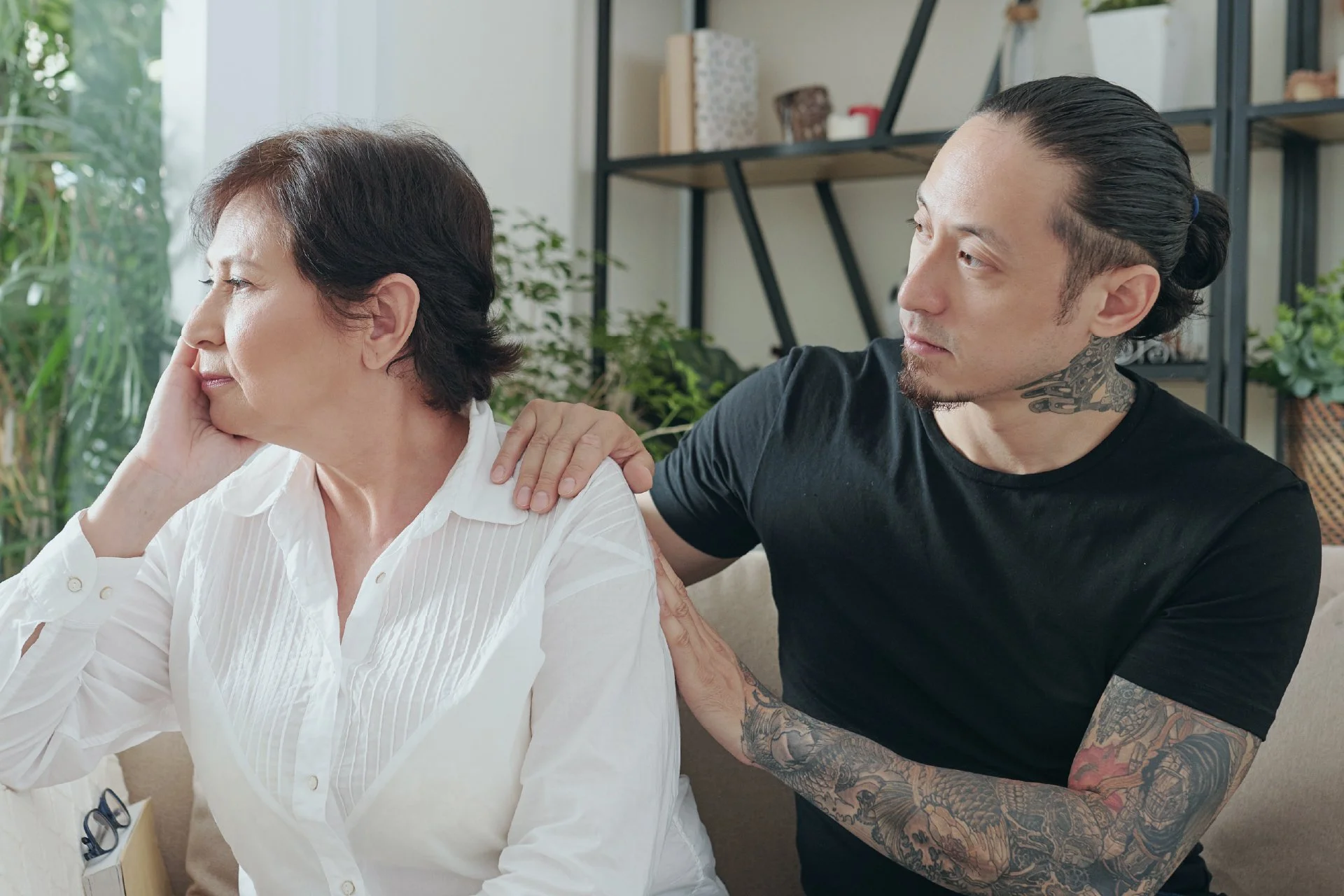Why Is My Adult Child Distant From Me, and Only Reaches Out When They Want Something?
If your adult child is distant, rarely contacts you, or only reaches out when they need something, you are not alone. Many parents quietly ask themselves, “Why doesn’t my adult child call me?” or “Why does my adult child only contact me when they want something?”
This pattern can feel painful and confusing, especially when you’ve spent years doing your best to love, support, and show up for your child. The instinct is often to give more, help more, or work harder to keep the relationship close. But this dynamic usually has the opposite effect that you had hoped for. It is not a reflection of your worth or your value as a parent.
Why Adult Children Become Distant
Adult children pull away for many reasons, and it’s rarely about a lack of love. Often, the roots lie in family systems, unspoken emotional rules, or patterns passed down through generations. Many parents grew up in environments where:
Emotions were minimized or ignored
Boundaries were discouraged
One person carried most of the emotional or practical responsibility
From these early experiences, you may have learned to:
Stay highly involved in your child’s life
Take responsibility for other people’s feelings
Express love through fixing, giving, caretaking, or over-functioning
These patterns come from generosity and care but they can unintentionally create tension as your child becomes an adult. What feels supportive to you may feel overwhelming or controlling to them. At the same time, the relationship may fall into a one-way relationship pattern, reaching out only when they need help, money, emotional labour, or practical support.
Signs Your Adult Child Is Creating Distance
You may notice:
They avoid regular contact but reach out when they need a favour, childcare, or financial help
Conversations stay surface-level unless they want something
They become irritated or defensive when you offer emotional support
They set boundaries that feel one-sided, rigid, or transactional
You feel used, dismissed, or invisible in the relationship
These experiences create real emotional pain and often deep grief for parents.
Common Blind Spots Parents Don’t Realize They Have
Many parents unintentionally fall into patterns such as:
Over-functioning
Stepping in too quickly to fix problems, preventing adult children from developing independence or learning from consequences.
Over-sharing
Measuring closeness of the relationship based on the ability to share current or past experiences of your life and receiving emotional support.
Boundary confusion
Believing that love means constant availability, even when it leads to burnout and resentment.
Unexamined family patterns
Repeating what you learned in your own childhood or over-compensating with what you did not receive from your family of origin.
These dynamics don’t make you a “bad parent”, they simply make you a human being shaped by your history.
How to Respond When Your Adult Child Only Contacts You When They Need Something
You cannot control your adult child’s behaviour, but you can shift the dynamic from your side. Here are some steps that help parents regain clarity and emotional balance:
Notice the pattern
Name the one-sided nature of the contact gently and honestly.
Respect their autonomy
Give your adult child the space to define the relationship at their pace without sacrificing your wellbeing. Honour their limits that they set with you while focusing on your self-care and wellbeing.
Set limits with love
It’s okay to say no to requests that feel draining, disrespectful, or unsustainable.
Redefine connection
Healthy connection is reciprocal, not built solely on fixing, giving, or rescuing.
Seek support for yourself
Counselling can help you process the grief of a distant relationship with your adult child, reclaim your identity, and untangle your old patterns that keep you over-functioning in relationships.
Moving Forward With Clarity and Compassion
If your adult child is estranged, distant, or only reaches out when they want something, it does not mean you’ve failed as a parent. It means the relationship is shaped by deeper emotional patterns, many of which began intergenerationally.
By turning inward, healing old wounds, and creating healthier boundaries aligned with a stronger internal sense of self, you open the door to a more balanced, respectful relationship.
You Deserve a Relationship That Feels Mutual and Respectful
At Blue Onion Counselling, I support parents who are navigating the heartbreak of distant or estranged adult children. Together, we explore unseen patterns, gently release any unnecessary guilt, and create healthier ways of relating rooted in self-respect, clarity, and inner strength.
With the right support, you can identify your limits that protect your energy, honour your heart, and help you show up from a grounded place that creates the space for your adult child to meet you with authenticity.
Schedule your 30-minute Complimentary Consultation here.

